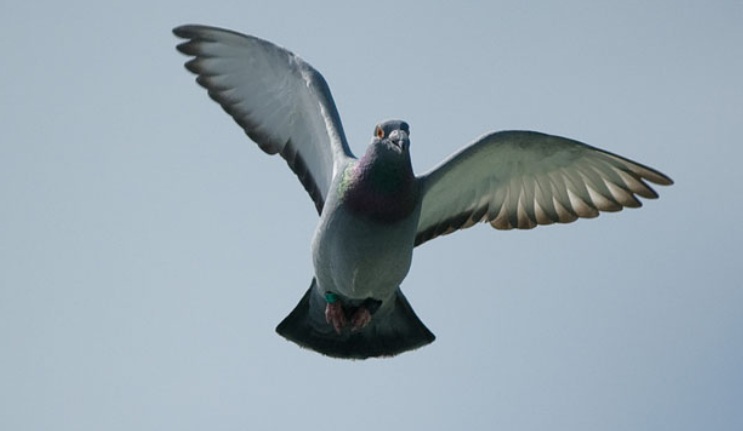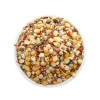
Natural Protein Boosters for Racing Pigeons That Work
Natural Protein Boosters for Racing Pigeons That Work
When it comes to fueling peak performance in racing pigeons, protein plays a central role. It supports strong muscle development, speedy recovery after races, feather health, and immune resilience. But with growing reliance on synthetic protein powders and commercial supplements, many fanciers are unknowingly creating more problems than solutions.
Overusing synthetic protein can lead to digestive stress, poor nutrient absorption, and long-term kidney strain — issues that eventually reflect in poor race results, sluggish recovery, and lackluster feather quality.
So, what’s the smarter approach?
Natural protein boosters like brewer’s yeast, peanuts, soy, and high-protein grains provide a balanced, bioavailable source of amino acids — without the risk of overloading your pigeons.
In this comprehensive guide, we’ll explore:
-
The dangers of overusing synthetic protein
-
Signs your pigeons may be suffering from protein overload
-
Proven natural protein sources and how to use them
-
Timing protein correctly during training, racing, and molting
-
A sample weekly protein schedule for racing lofts
Let’s dive into how you can support your pigeons the natural way — and keep their digestive and muscular systems firing on all cylinders.
Why Protein Is Critical for Racing Pigeons
Whether your team is prepping for a 50 km toss or recovering from a 600 km marathon, protein serves as the biological building block for:
-
Wing and breast muscle development
-
Enzyme and hormone production
-
Immune function and disease resistance
-
Feather strength and molt efficiency
-
Post-race muscle recovery and repair
But like anything, more isn’t always better. Feeding excessive or poorly absorbed protein can do more harm than good.
The Problem with Synthetic Protein Overuse
Synthetic protein powders — often derived from milk (whey/casein), egg, or soy isolates — are highly concentrated. While they’re designed for quick absorption, overuse can overwhelm a pigeon’s digestive system, leading to:
-
Poor absorption of other nutrients
-
Increased urates in droppings (white, watery)
-
Kidney strain from excess nitrogen waste
-
Disrupted gut flora and weakened digestion
-
Loss of appetite due to unnatural taste or texture
Over time, this can result in soft muscle tone, weak race performance, and unhealthy molt cycles, even if you’re feeding expensive supplements.
Signs Your Pigeons Might Have Protein Overload
Watch out for these red flags:
| Symptom | Possible Cause |
|---|---|
| Watery, white droppings | Excess nitrogen from undigested protein |
| Decreased appetite | Taste fatigue or gut irritation |
| Weight gain without muscle definition | Overfeeding synthetic calories |
| Slow race recovery | Poor nutrient utilization |
| Sluggish behavior or poor toss returns | Internal stress from digestive burden |
**If you’re seeing these signs, it’s time to ease off the synthetics and shift toward natural protein boosters**
Top Natural Protein Sources for Racing Pigeons
Switching to natural sources not only supports digestion but also ensures balanced nutrient intake, thanks to the presence of co-factors, enzymes, and beneficial microbes.
1. Brewer’s Yeast
-
Protein content: ~45–50%
-
Rich in: B-vitamins, selenium, chromium
-
Benefits:
-
Boosts feather growth
-
Enhances metabolism
-
Promotes healthy gut bacteria
-
Feeding Tip: Mix a teaspoon with grit or sprinkle over dampened grains 2–3 times weekly.
2. Peanuts (Raw or Roasted, Unsalted)
-
Protein content: ~25–30%
-
Rich in: Healthy fats, Vitamin E
-
Benefits:
-
Energy + protein combo
-
Supports muscle conditioning
-
Helps birds maintain weight in colder weather
-
Feeding Tip: Offer crushed or whole (depending on bird age) 2–3 times weekly as part of the feed mix.
3. Soybeans (Cooked or Toasted)
-
Protein content: ~40%
-
Rich in: Amino acids (lysine, methionine)
-
Benefits:
-
Strong support for post-race recovery
-
Builds muscle during road training
-
Excellent molt-phase booster
-
Feeding Tip: Never feed raw — always cook, toast, or ferment. Use in limited amounts due to fat content.
4. Green Peas and Lentils
-
Protein content: 22–26%
-
Rich in: Digestible plant proteins and fiber
-
Benefits:
-
Versatile base for feed mixes
-
Supports young bird growth and molting
-
Easy to sprout for higher bioavailability
-
Feeding Tip: Use peas as the foundation of your protein mix. Lentils work well during early training.
5. Sprouted Seeds
Sprouting increases enzyme activity and makes proteins more digestible.
-
Try sprouting mung beans, fenugreek, or wheatgrass
-
Feed fresh within 2–3 days of germination
-
Acts as both a protein and vitamin booster
Supporting Natural Protein Absorption
Protein isn’t just about what you feed — it’s also about what your pigeons can digest and absorb.
Use Apple Cider Vinegar (ACV)
-
ACV balances gut pH
-
Supports beneficial bacteria
-
Improves protein assimilation
How to Use: Add 5–10 ml per liter of drinking water, 2–3 days per week.
Include Probiotics
-
Help break down protein
-
Restore gut flora after medication
-
Prevent digestive overload
Look for: Multi-strain pigeon-specific probiotic blends or natural yogurt-based supplements.
When to Boost Protein Naturally
🕊 Pre-Race Conditioning
Muscles are being built — focus on peas, brewer’s yeast, and sprouted grains.
🕊 After Tough Races
Muscles need repair — offer cooked soybeans, peanuts, and a light yeast sprinkle.
🕊 Molting Season
Feathers require keratin — use lentils, soy, and a yeast-mineral blend.
🕊 During Illness or Recovery
Protein helps restore tissues — lean on soft-food blends with natural protein and probiotics.
Sample Weekly Protein Boost Plan (Natural-Based)
| Day | Natural Protein Strategy |
|---|---|
| Monday | Normal mix with peas/lentils + brewer’s yeast |
| Tuesday | Apple cider vinegar in water + crushed peanuts |
| Wednesday | Rest day — regular grain mix only |
| Thursday | Cooked soybeans + probiotics |
| Friday | Sprouted mung beans + brewer’s yeast |
| Saturday | Light protein (peas + lentils only) |
| Sunday | Recovery: ACV + soft mix with peanuts and yeast |
Transitioning Away from Synthetic Protein: Do It Gradually
If your birds are used to synthetic protein powders, make changes slowly:
-
Week 1–2: Halve synthetic protein, introduce brewer’s yeast
-
Week 3–4: Replace synthetics with soy/peanuts 2 days/week
-
Week 5 onward: Fully switch to natural rotation plan
Final Thoughts: Nature Knows Best
Synthetic protein powders might promise instant results, but long-term success in racing pigeon performance is built on natural, digestible, balanced nutrition. By incorporating time-tested boosters like brewer’s yeast, peanuts, soy, and high-protein grains, you’re feeding in sync with your pigeons’ biology — not against it.
Your racing team deserves more than a chemical shortcut. Feed smart, go natural, and watch them soar.



